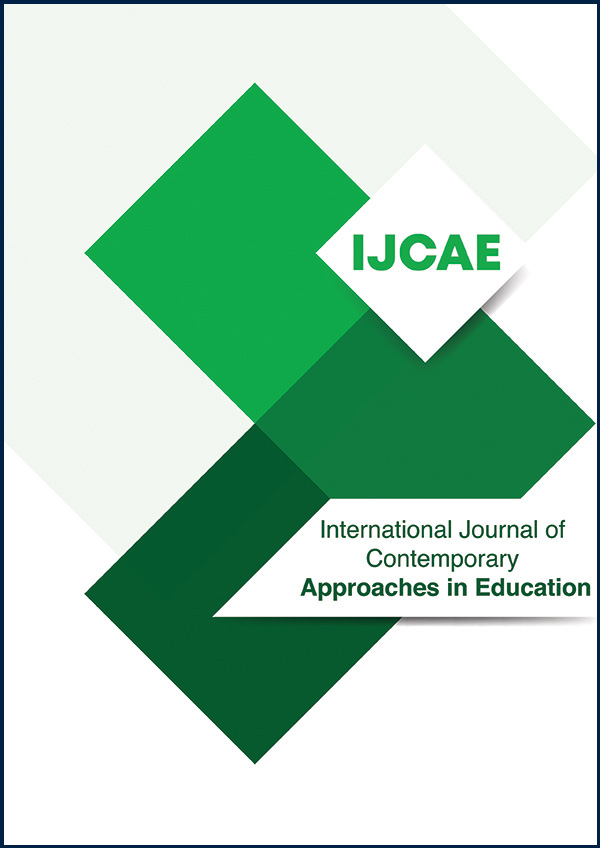- Adedayo, A. (2016). Students' perception of character education and social values for greater productivity. Nigerian Journals of Social Studies 19 (2), 50- 56. [Google Scholar]
- Adeyemi, B. A & Falade, D. (2015) Civic Education in Nigeria's one hundred years of existence: Problems and Prospect. Journal of Emerging Trends in Educational Research and Policy Studies. 6(1), 113-118. [Google Scholar]
- Adeyemi, B. (2016). Stakeholders’ perceptions of the relevance of multi-cultural education in the Nigerian educational system. Nigerian Journal of Social Studies. 19 (1), 101 - 119. [Google Scholar]
- Akinola, D. B. (2011). Globalizing the school curriculum for national development. Abuja [Google Scholar]
- International Journal of Education and Management Science. 1 (1), 194 - 200. [Google Scholar]
- Akinola, D. B. (2014). Teachers’ perception of civic education curriculum as a tool for developing responsible citizen. Nigerian Journal of Social Studies, 125-137. [Google Scholar]
- Akinola, D. B. (2011). Teachers' assessment of contribution of social studies curriculum in achieving milllenium development goals in North Central Zone, Nigeria. pp. 5-60. [Google Scholar]
- Danaladi, E. N. (2014). Principles and practice of Social Studies. Abuja: Chartered Graphic Press. [Google Scholar]
- Danladi, E. N. (2011). Civic education as citizenship mission. Nigerian Journal of Social Studies, 14 (2), 50- 61. [Google Scholar]
- Danladi, E & Jarimi, M. (2011). Theory and practice of Social Studies curriculum in Nigeria. Abuja: Chartered Graphic Press [Google Scholar]
- Falade, D. (2016). Problems and prospects of teaching religion and national values in Nigeria. Nigerian Journal of Social Studies. 19 (2), 41 - 66. [Google Scholar]
- Federal Government of Nigeria (2004). The compulsory free universal basic education and other related matters Act. Lagos: Government Printer. [Google Scholar]
- Federal Republic of Nigeria (2004). National economic empowerment and development strategy (NEEDs), Abuja. Perfect Printers Limited [Google Scholar]
- Federal Republic of Nigeria, F. (2004). National policy on education. Abuja: NERDC. [Google Scholar]
- Fred, C. &. (2008). Writing a successful thesis or dissertation. United Kingdom: Corwin Press. [Google Scholar]
- Ikwumelu, S., & Mbag, E. &. (2015). Social Studies and the need for value based education in Nigeria. British Journal of Education.3 (11), 63 - 64. [Google Scholar]
- Jimoh, A. S., Akinrolabu, O. A. & Ibhafidon, H. E (2017). A survey of teachers’ lesson [Google Scholar]
- preparation for Social Studies instruction in South Western Nigeria studies in education. [Google Scholar]
- Journal of the Faculty of Education, Ambrose Alli University, Ekpoma. [Google Scholar]
- Mezieobi, B. A. (2014). Classroom management and teaching of Social Studies. Journal of Education and Practice, 62-69. [Google Scholar]
- Mezieobi, D. (2008). Social Studies as an instrument for building sustainable democratic values in Nigeria. Bassey Andah Journal. 1, 45 - 58. [Google Scholar]
- Mezieobi, D. I & Ezegbe, B. N. (2012). The challenges of Social Studies for effective teacher preparation and implementation of the universal basic education programme in Nigeria Junior Secondary Schools. Nsukka Nigeria: David Publishing. [Google Scholar]
- Meziobi, D. & Oyeoku, E. (2012). The challenges of Social Studies Educators for effective teacher preparation and implementation of the universal basic education [Google Scholar]
- programme in Nigerian junior secondary schools. USA-China Education Review. B, (11), 947 - 955. [Google Scholar]
- Mezieobi, K A. (2014). Classroom management and teaching of Social Studies. Journal of Education and Practice, 62-69. [Google Scholar]
- Mezieobi, K. (2017). Essays on Social Studies. Owerri Nigeria: Christopher Katukoma Publishing Company. [Google Scholar]
- Mezieobi, K. A. & Mezieobi S. A. (2015). Evaluation in Social Studies: The substance. Owerri Nigeria: Priscilla Omama Publishers [Google Scholar]
- Muhammed, K. O. (2017) Teachers’ perception of values clarification strategies for students learning and understanding of skills in Social Studies in Nigeria. [Google Scholar]
- Unpublished PhD thesis, University of Nigeria. [Google Scholar]
- National Framework for Values Education in Australian Schools (2000), Global perspectives: [Google Scholar]
- A framework for global education in Australian schools. Retrieved2011from//ttp://www.valueseducation.all/values. 20/5/2010. [Google Scholar]
- NERDC (2007). Nigerian Educational Research and Development Council: [Google Scholar]
- National Minimum Standard for ECCE in Nigeria by UNICEF. [Google Scholar]
- Nworgu, B. (2010). Educational research: Basic issues and methodology. Abuja. [Google Scholar]
- Obaje A. F. & Olatunde F.A, (2016). Students’ perception of character education and social values for greater productivity in Social Studies. Nigerian Journal of Social Studies, 19, 50-6 [Google Scholar]
- Okoh, N. (2012). Reinforcing values reorientation for national development. [Google Scholar]
- Nigerian Academic Forum. 23 (1), 1 - 9. [Google Scholar]
- Oladiti, A. A. (2019). Boosting Social Studies teaching through global best practices for tackling corruption and materialism in Nigeria. Nigerian Journal of Social Studies, 33-54 [Google Scholar]
- Raliya, M. (2012). Effectiveness of values clarification counselling in minimizing value conflicts among secondary school students. Nigerian Journal of Social Studies. 15(1), 88 - 99. [Google Scholar]
|

